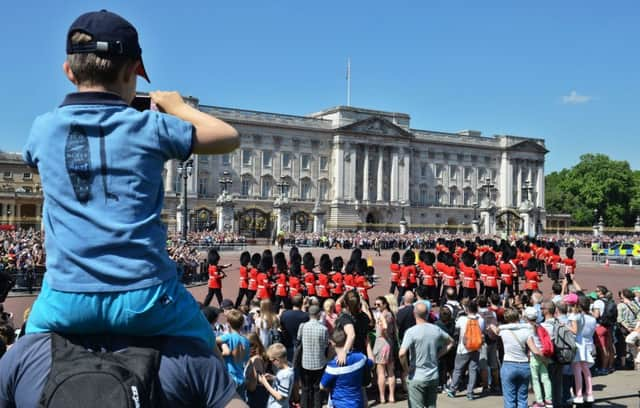Tourism booms but more money leaves than enters in '˜ice cream Brexit'


The British Tourist Authority will announce that the nation is on track to beat a visitor target two years earlier than expected.
Officials had forecast previously that 40m annual inbound visits would be recorded by 2020. But today’s figures reveal that the figure will be beaten this year, by almost 1m travellers.
Advertisement
Hide AdAdvertisement
Hide AdTheir spending is expected to boost the economy by £26.3bn. But despite the unexpected bonanza, Britons going abroad are spending more still.
Inbound visits reached a record 39.2m last year – up four per cent on the previous year – while spending rose by nine per cent to £24.5bn.
There has also been a spike in domestic tourism, with visits and spending up six per cent in 2017.
The Authority said last night that the industry was a “£127bn powerhouse” and urged the Government to give it more support through a sector deal under the Industrial Strategy.
Advertisement
Hide AdAdvertisement
Hide AdIts chairman, Steve Ridgway, said Brexit was the “most important” challenge” facing tourism.
“Whilst we address the initial fluctuations in currency and EU worker concerns, we soon will need to deal with the longer-term realities,” he warned.
“We want to ensure that the future relationship keeps our borders as frictionless as possible for visitors, our aviation as connected as ever, and our economic stability on track, because tourism depends on this.”
Mr Ridgway said the disparity in spending by overseas visitors to the UK and British tourists going abroad had been caused by the availability of affordable travel.
Advertisement
Hide AdAdvertisement
Hide AdMany young people were “finding it easier to jump on a cheap flight and head elsewhere than discover this country”, he said, adding: “We want to reverse this.”
In Yorkshire, where tourism is said to be at “an all-time high”, the success of such events as the annual Tour de Yorkshire cycle race is said to be worth £8bn to the regional economy. The first quarter of this year saw a record rise in visitors, with nearly 295,000 coming from overseas.
Welcome to Yorkshire’s chief executive, Sir Gary Verity, said the figures for the summer just ended had been “incredible”, thanks in part to those using the fine weather as a reason to holiday at home. He also reported an influx of overseas visitors taking advantage of the value of the pound.
Figures produced in the spring recorded that in 2016, the last full year for which data was available, tourists spent a total of £6.5bn in Yorkshire. The “supply chain effect” of tourism added a further £1.5bn.
Advertisement
Hide AdAdvertisement
Hide AdOf the total, the region’s 4,800 hotels, guest houses and B&Bs shared a pot of £1.6bn, with day- trippers spending £4.3bn and overseas travellers £516m.
However, researchers found that although foreign visitors stayed in the region 11 per cent longer than previously, by far the largest proportion had come from elsewhere in Yorkshire.
Sir Gary said: “We know we’ve lots of work to do to keep up that momentum, particularly in the wake of Brexit. The Tour de Yorkshire will be the first big event for the whole of the UK after Brexit and what better way to prove to the world that Yorkshire is open for business than by showcasing the county to millions of TV viewers around the globe.”
The Tourism Minister, Michael Ellis, said Britain’s tourism industry was “booming”.
He said: “Tourism shows the world the best of our nation.”